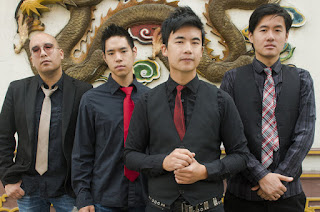BREAKING: US Supreme Court holds provision preventing registration of disparaging trade marks unconstitutional
Similarly to EU trade mark law, which prohibits registration of signs "which are contrary to public policy or to accepted principles of morality" [Article 4(1)(f) Trade Mark Directive; Article 7(1)(f) Trade Mark Regulation], the US Lanham Act contains a provision that prevents registration of certain signs on similar grounds.
More specifically, among other things §1052(a) provides that "No trademark by which the goods of the applicant may be distinguished from the goods of others shall be refused registration on the principal register on account of its nature unless it—(a) Consists of or comprises ... matter which may disparage".
Readers will remember that the issue of disparaging trade marks has been at the centre of attention in the US for a while, also following the refusal, by the US Patent and Trademark Office (PTO), to register "THE SLANTS" as a federal trade mark. Readers will also recall that the issues facing disparaging trade marks are not limited to this case: back in 2014, for instance, the PTO cancelled the Redskins' trade mark registrations on the same grounds.
The application to register "THE SLANTS" as a trade mark was made by Simon Tam, lead singer of rock group “The Slants”. The band chose this name [a slang, derogatory term used for persons of Asian descent] to “reclaim” the term and drain its denigrating force as a derogatory term for Asian persons.
 |
| Justice Samuel Alito |
Further to the PTO's refusal to register the sign as a trade mark, Tam took the case to federal court, where the en banc Federal Circuit ultimately found the disparagement clause in the Lanham Act facially unconstitutional under the First Amendment’s Free Speech Clause.
The US Supreme Court accepted to consider the issue of disparaging trade marks, and earlier today it issued its judgment. Delivering part of the Court's opinion, Justice Alito announced the judgment, which affirms the Federal Circuit's judgment.
Among other things, Justice Alito held that:
"The disparagement clause violates the First Amendment’s Free Speech Clause. Contrary to the Government’s contention, trademarks are private, not government speech. Because the “Free Speech Clause . . . does not regulate government speech,” Pleasant Grove City v. Summum, 555 U. S. 460, 467, the government is not required to maintain viewpoint neutrality on its own speech. This Court exercises great caution in extending its government-speech precedents, for if private speech could be passed off as government speech by simply affixing a government seal of approval, government could silence or muffle the expression of disfavored viewpoints."
A more detailed analysis will be provided as soon as possible.
[Originally published on The IPKat on 19 June 2017]




Comments
Post a Comment